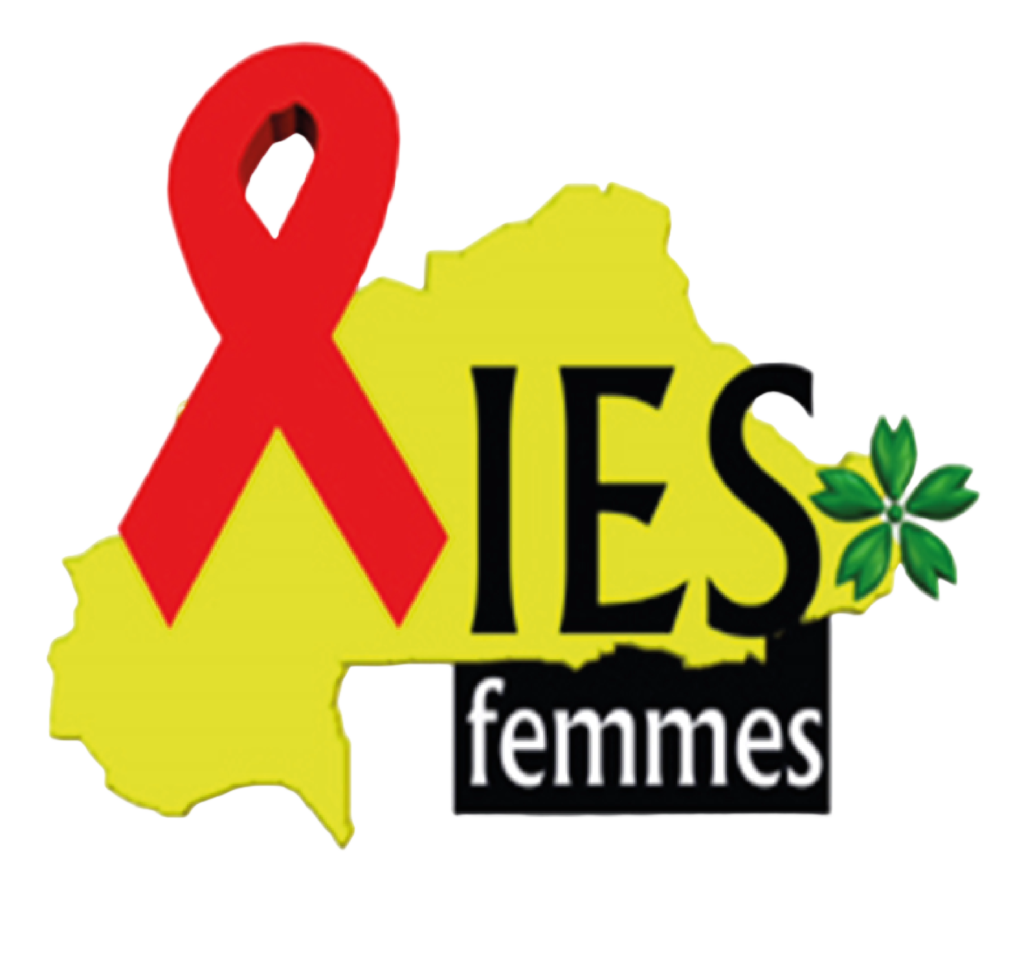Actuality
Stay Informed about Our Projects, Events and Achievements

Advocacy meeting for religious, customary or community leaders – Palu IES
Report of the advocacy meeting for religious, customary or community leaders in the Bogodogo health district for better application of malaria prevention measures in their community
Reminder of context and justification
The global malaria report, released in December 2022, indicates that malaria claimed the lives of approximately 619,000 people in 2021, compared to 625,000 in 2020. There were some 247 million new cases of malaria in 2021, compared to 245 million in 2020. The WHO African Region continues to bear the heaviest burden of the disease. In 2021, it represented approximately 95% of all malaria cases (234 million) and 96% of all deaths (593,000). Nearly 80% of malaria deaths in the African Region were among children under five years old.
In Burkina Faso, despite the progress recorded, malaria remains a public health problem. According to statistical data from the national health information system, malaria remains the leading reason for consultation (42.2%), hospitalization (50.75%) and death (13.9%) in health facilities. Thus our country recorded in 2022, 11,656,675 cases of malaria with unfortunately 4,243 deaths. Malaria occurs all year round, with a seasonal increase during the rainy season. Pregnant women and children under five pay the heaviest price. Malaria, in addition to being a public health problem, is a development problem.
Like the entire country, malaria remains the number one reason for consultation in the central region. According to the 2022 statistical yearbook, 1,400,565 cases of malaria including 451 deaths were reported in basic health facilities in the central region. The Bogodogo district, for its part, records 419,260 cases with 11 deaths linked to malaria in 2022.
To support the government’s actions in favor of the fight to eliminate malaria, civil society organizations have engaged through social mobilization, awareness-raising and advocacy actions.
It is in this perspective that the IES/FEMMES association, in collaboration with SP/Palu and Speak Up Africa, plays an essential role by implementing an advocacy action plan, aims to mobilize leaders for active engagement in the fight against malaria, by strengthening the implementation of prevention measures in the Bogodogo health district.
Reminder of the objectives of the meeting
The objectives pursued by this meeting were to:
- Strengthen leaders’ knowledge of the impact of malaria and the importance of prevention measures.
- Strengthen the knowledge of leaders on specific measures to combat malaria.
- Encourager les leaders à promouvoir activement les pratiques de prévention du paludisme au sein de leurs communautés.
- Facilitate exchanges between leaders to share good practices and effective strategies.
Reminder of expected results:
The expected results of carrying out the activity were:
- Religious, customary and community leaders understand the critical importance of the fight against malaria.
- Leaders are familiar with malaria prevention measures and their impact.
- Leaders are committed to actively promoting malaria prevention practices in their respective communities.
Progress of the activity:
- Opening ceremony :
The opening ceremony of the workshop was marked by a welcome word from the president of the IES/FEMMES association, a word from the representative of Speak Up Africa and the opening speech from the Secretary General of the province of Kadiogo, representing the High Commissioner of the province of Kadiogo.
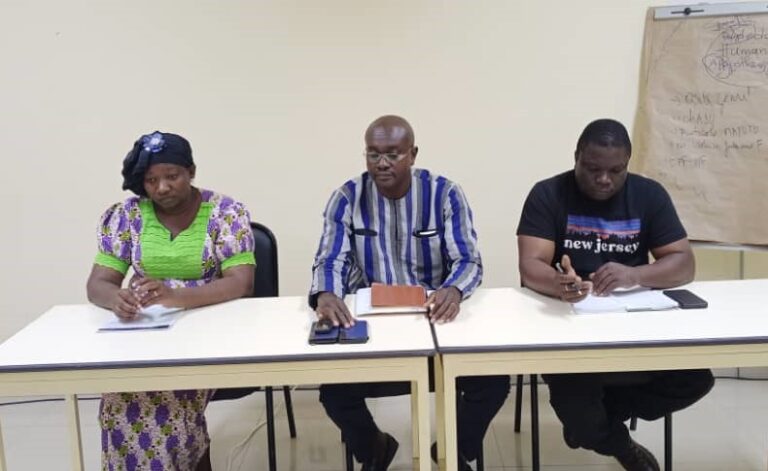
Photo of the presidium: from left to right, the representative of Speak Up Africa, the secretary general of Kadiogo province and the representative of CCM
The president of IES/FEMMES warmly welcomed the dedicated leaders, honorable guests and committed partners to this decisive meeting for their communities. Quoting Mother Teresa, she highlighted the importance of small actions done with great love in the fight against malaria, a major challenge for the world.
She highlighted that behind the numbers are affected lives, families and communities, but emphasized unity in a common vision and the impact that every small action can have. Quoting Alice Walker, she highlighted the importance of respect for life and the earth, illustrating their commitment to a healthier future for all.
The President expressed her deep gratitude to the authorities and partners whose support made this crucial initiative possible, highlighting the power of collaboration for community well-being.
She presented the day as an opportunity for exchange, learning and concrete commitment to malaria prevention, quoting Kofi Annan to emphasize that health is the basis of human development. She urged participants to fully seize this opportunity, emphasizing the importance of their voices, experiences and dedication in advancing this vital cause.
Following the president, the representative of Speak Up Africa expressed her gratitude to the participants for their presence and their interest in the fight against malaria during an advocacy meeting. She stressed that despite the efforts of the government and civil organizations, malaria remains a public health problem in Burkina Faso. She highlighted the crucial importance of religious, customary and community leaders in integrating awareness sessions on malaria prevention during their regular meetings with their respective communities.
Then it was the turn of the secretary general of Kadiogo province, representing the High Commissioner, who opened the meeting by emphasizing collective responsibility for health. He identified malaria as a persistent challenge, highlighting the affected lives behind the statistics. He called for the unity of administrative, customary, religious and media leaders to mobilize communities.
Denouncing malaria as an obstacle to development, he praised government efforts while emphasizing the need for collective support to succeed. He assigned specific roles to authorities, traditional and religious leaders, as well as the media to raise awareness and take action.
Highlighting the potential benefits of collective engagement, he called for words to be transformed into concrete actions to reverse the trend of malaria, protect families and build resilient communities.
Presentation of the participants:
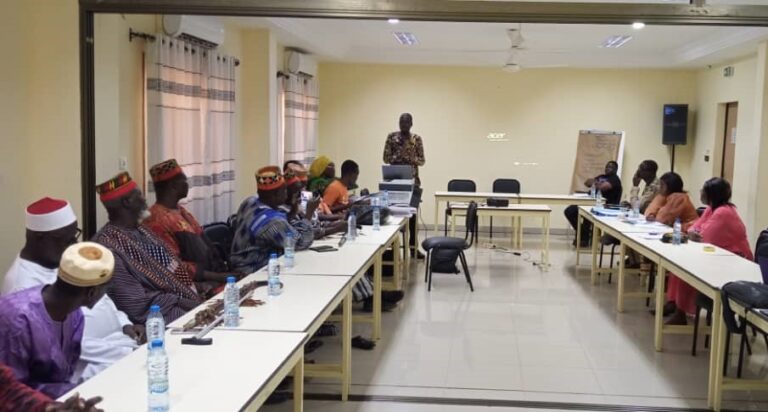
Presentation of the participants:
Communications :
The first communication was made by the chief medical officer of the Bogodogo health district and is as follows:
Dr PAGBELGUEM, chief medical officer of the Bogodogo health district, presented the epidemiology of malaria in the region. He highlighted the scale of the problem, including statistics of simple and serious cases as well as deaths, highlighting the impact on consultations, hospitalizations and deaths, particularly among children under five years old.
He discussed measures to combat malaria, including drug prevention with Intermittent Preventive Treatment in pregnant women and Seasonal Malaria Prevention Chemotherapy in children. He also discussed vector control, hygiene, and other preventive approaches.
The doctor outlined challenges such as adequate coverage, adherence to treatments, and highlighted opportunities with the involvement of civil society, community leaders
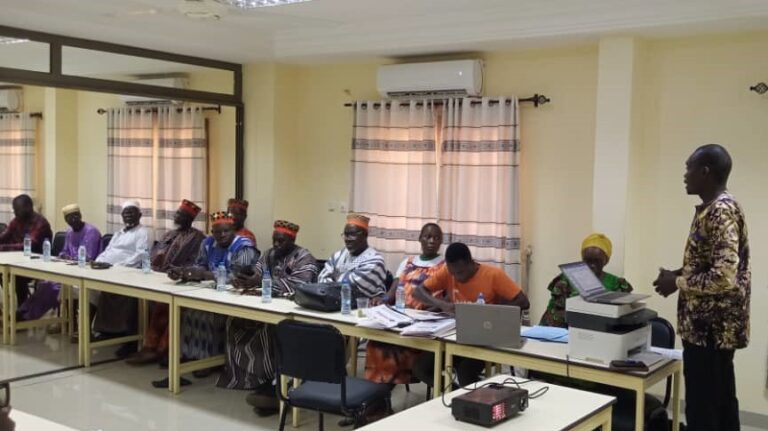
Communication from the head doctor of the Bogodogo health district
The second communication:
The IES/FEMMES monitoring-evaluation officer presented a plea to mobilize the commitment of community leaders in the fight against malaria in the Bogodogo health district.
He outlined the global context of malaria, highlighting the alarming figures of deaths and new cases, particularly in Africa, with a predominance among children under five years old. At the national level, despite progress, malaria remains a major public health problem, impacting consultations, hospitalizations and deaths.
The issues of malaria were addressed, highlighting the massive expenditure in financial and technical resources, the consequences on the development of children, the risk for pregnant women, and its direct link with infant mortality.
He also presented the role of the authorities, highlighting the actions of the government and the Permanent Secretariat for the elimination of Malaria with the aim of eliminating this disease by 2030. He insisted on the importance of leaders in raising awareness, the dissemination of precise information and the mobilization of the population.
Expectations towards religious and customary leaders and civil society have been clearly defined, particularly in terms of awareness, mobilization, and supervision of actions to combat malaria.
These two presentations were followed by exchanges through questions and answers, contributions and proposals:
The discussions :
The discussions focused on the scale of this disease and the challenges encountered in its fight, as well as the opportunities to be seized.
The leaders expressed diverse perspectives: some praised the effectiveness of the distribution of mosquito nets while calling on authorities to implement repressive measures in the face of persistent poor hygiene practices, such as stagnant water. Others highlighted the sensitivity of populations to repressive measures and shared personal experiences facing sanitation problems, highlighting the importance of coercive actions in addition to awareness-raising.
Unanimity emerged on the crucial role of leaders in the application of preventive measures against malaria, due to their influence and their proximity to communities. Specific concerns were raised, such as the application of repressive measures concerning domestic breeding or the establishment of means of communication to report cases of unsanitary conditions.
Concerns were expressed about rumors about the side effects of preventive drugs against malaria, to which the first manager of the Bogodogo health district responded by emphasizing the validation of the drugs by a scientific committee and recalling the crucial role of leaders in countering such rumors.
The leaders shared success stories, such as the construction of hygienic toilets following complaints to the hygiene department. Finally, specific commitments were expected from leaders, emphasizing the need for synergy of actions between them, administrative and political authorities for a more effective fight against malaria.
Commitments and next steps:
At the end of the exchanges and discussions, all the leaders present made a formal commitment to strengthen the application of prevention measures within their respective communities. This commitment was symbolized by a photography session recording this collective agreement.
Following these commitments, the next steps were set out, including follow-up visits to verify the implementation of the commitments, in particular the creation of monitoring committees, as well as the launch of community days dedicated to hygiene and sanitation.
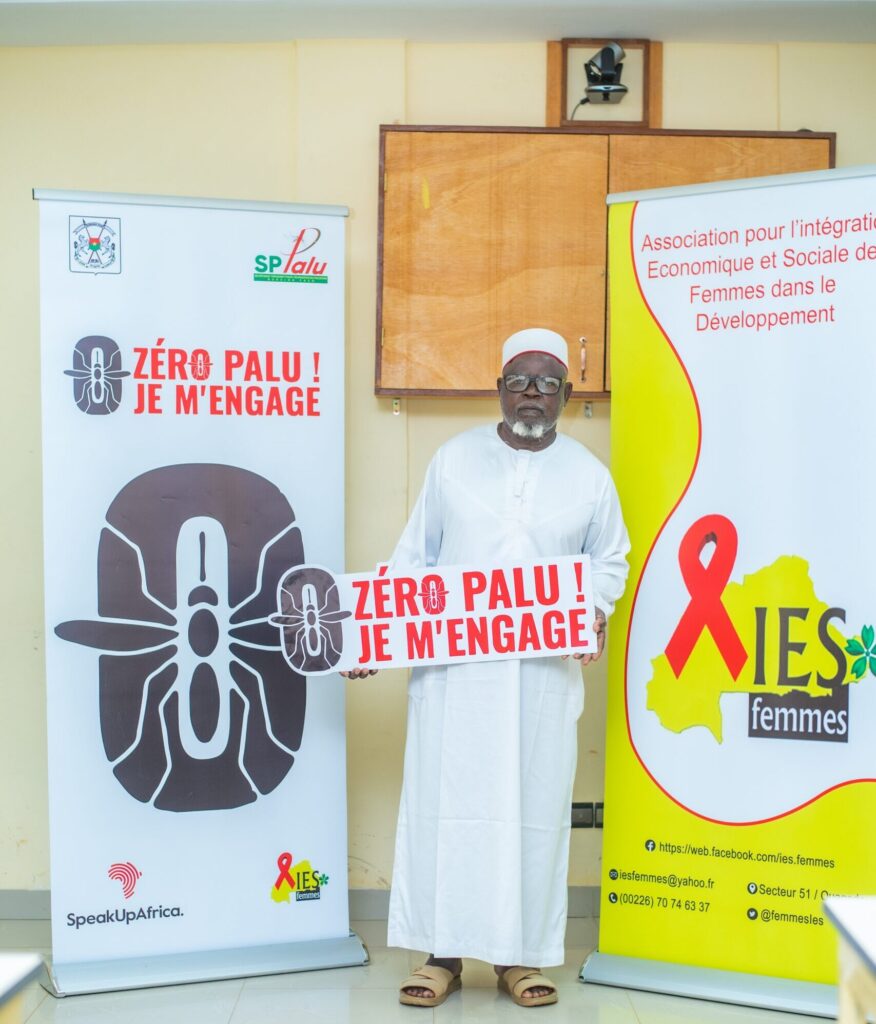
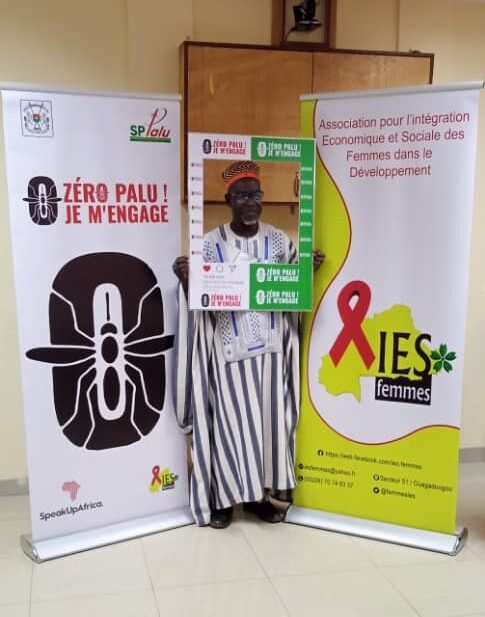
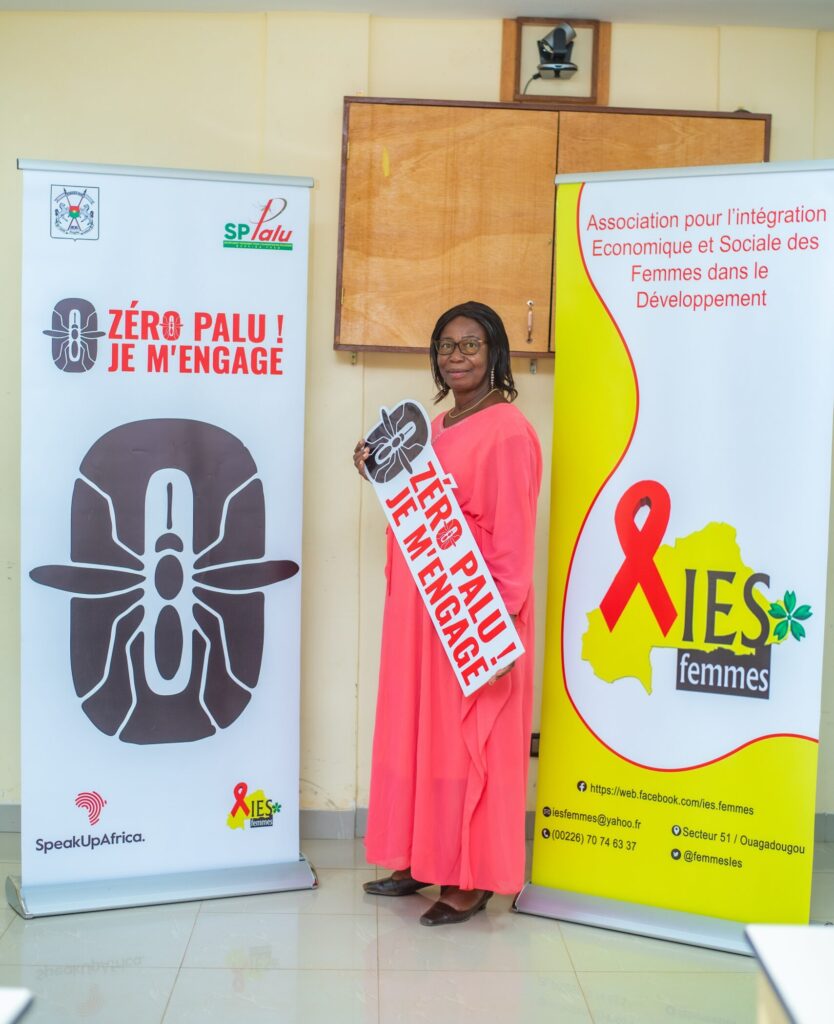
Formal leader engagement photos
Fence :
The session closed with words from the representative of the CCM (Country Coordinating Mechanism), the entity coordinating grants from the Global Fund for the fight against tuberculosis, HIV/AIDS and malaria at the national level. He expressed his gratitude to all participants for their commitment alongside the State in the fight against malaria, a major public health problem in our country. Its conclusion marked the official end of this advocacy workshop.
